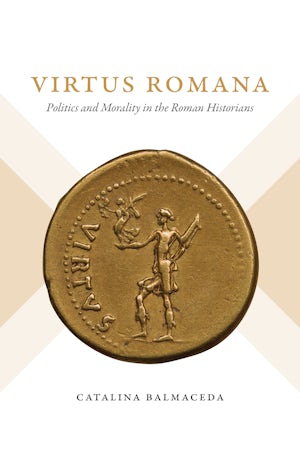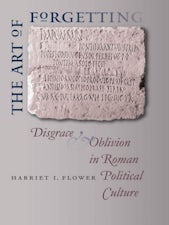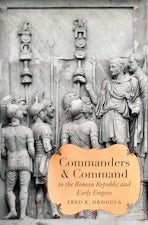Virtus Romana
Politics and Morality in the Roman Historians
By Catalina Balmaceda
312 pp., 6.125 x 9.25, 3 halftones, notes, bibl., index
-
Paperback ISBN: 978-1-4696-6862-8
Published: November 2021 -
Hardcover ISBN: 978-1-4696-3512-5
Published: November 2017 -
E-book EPUB ISBN: 978-1-4696-3513-2
Published: October 2017 -
E-book PDF ISBN: 979-8-8908-5308-0
Published: October 2017
Studies in the History of Greece and Rome
Buy this Book
- Paperback $35.95
- Hardcover $45.00
- E-Book $19.99
For Professors:
Free E-Exam Copies
Tracing how virtus informed Roman thought over time, Catalina Balmaceda explores the concept and its manifestations in the narratives of four successive Latin historians who span the late Republic and early Principate: Sallust, Livy, Velleius, and Tacitus. Balmaceda demonstrates that virtus in these historical narratives served as a form of self-definition that fostered and propagated a new model of the ideal Roman more fitting to imperial times. As a crucial moral and political concept, virtus worked as a key idea in the complex system of Roman sociocultural values and norms that underpinned Roman attitudes about both present and past. This book offers a reappraisal of the historians as promoters of change and continuity in the political culture of both the Republic and the Empire.
About the Author
Catalina Balmaceda is associate professor of ancient history at Pontificia Universidad Catolica de Chile.
For more information about Catalina Balmaceda, visit
the
Author
Page.
Reviews
“Balmaceda's method shows the many insights into Roman society that can be gained from following its cultural values through time.”--Bryn Mawr Classical Review
“Clearly written and effectively presented, Virtus Romana stands out among other studies of virtus. By tracing the concept through the context of historiographical narratives, this book will be useful to scholars in multiple fields.”—Christina Kraus, Yale University




